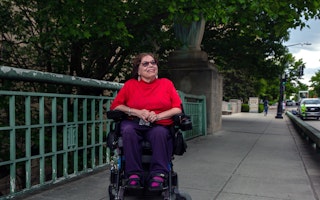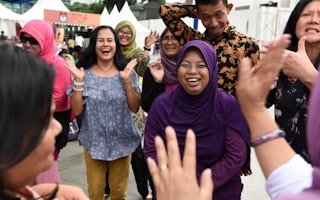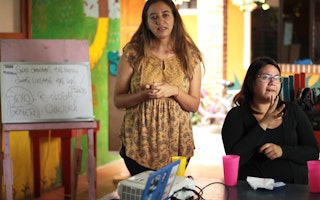Disability Is No Longer Invisible in Mongolia
By Gerelmaa Amgaabazar & Kate Lapham
Advocacy groups and nongovernmental organizations in Mongolia have been working for many years to raise awareness about the challenges people with disabilities face participating in their communities. One of the results of this work is a push by policymakers to gather better data about disability in Mongolia so that policies and programs can become more effective.
For the first time, the state census in 2010 included specific questions related to disability, which supported comparisons of access to public services, like education and health care, for people with disabilities and the nondisabled population. Any statistical information about people with disabilities before that had relied on one-time study, or education or health sector databases, each of which employed different methodology. The census runs every 10 years and will repeat these questions.

The findings paint a bleak picture. The 2010 census data reports that 9,500 children below age 15 have disabilities, which constitutes 1.3 percent of all children under 15 years of age. This is consistent with demographic statistics internationally. However, half the people with disabilities from birth have no access to education, and most who have obtained educational credentials have completed primary education only.
There is also a clear disparity in education access even among people with disabilities, which affects most negatively the 40 percent of people with disabilities from birth. Finally, out of about 20,000 people with disabilities aged over 15, less than 20 percent are engaged in income-generating activity, which is 2.4 times lower than the overall Mongolian population.
Despite absence of a media interest, NGOs, human rights groups, provincial governments and Ministries are using the census data in public discussions and for planning, especially because there is a designated Department for People with Disabilities at the Ministry of Population Development and Social Protection, created in 2012.
The Open Society Forum in Mongolia is working to advance the inclusive education agenda. When we started working in this field, we realized that there were multiple sources of information about children and youth with disabilities, and they were all separate, stand-alone pieces. For the factsheet above, we looked at three different sources, including the thematic reports Children and Youth and People with Disabilities, released by the National Statistical Office after the 2010 census, and the statistical data available publicly on the Ministry of Education’s official website. We wanted to make these stats easily accessible and understandable, so that we and others can use it.
Long-term goals in addressing education and health policy for children with disabilities include improved and coordinated early intervention as key reforms. This requires development of classification, screening, and service referral for children with disabilities or potential delays in development based on a social approach to disability. The current medical approach sees disability as a condition that prevents participation in society that should be treated. By contrast, a social approach identifies barriers to participation that can be changed or adapted to meet the needs of the entire community.
We also hope to redeploy the resources and expertise from the small number of segregated, special schools based in the capital to support meaningful integration of children with special needs in the mainstream school system through flexible provision of services based on needs and interests of the child/ his family.
Gerelmaa Amgaabazar is manager for social and educational issues at the Open Society Forum–Mongolia.

Until November 2021, Kate Lapham was the deputy director of the Open Society Education Support Program.


